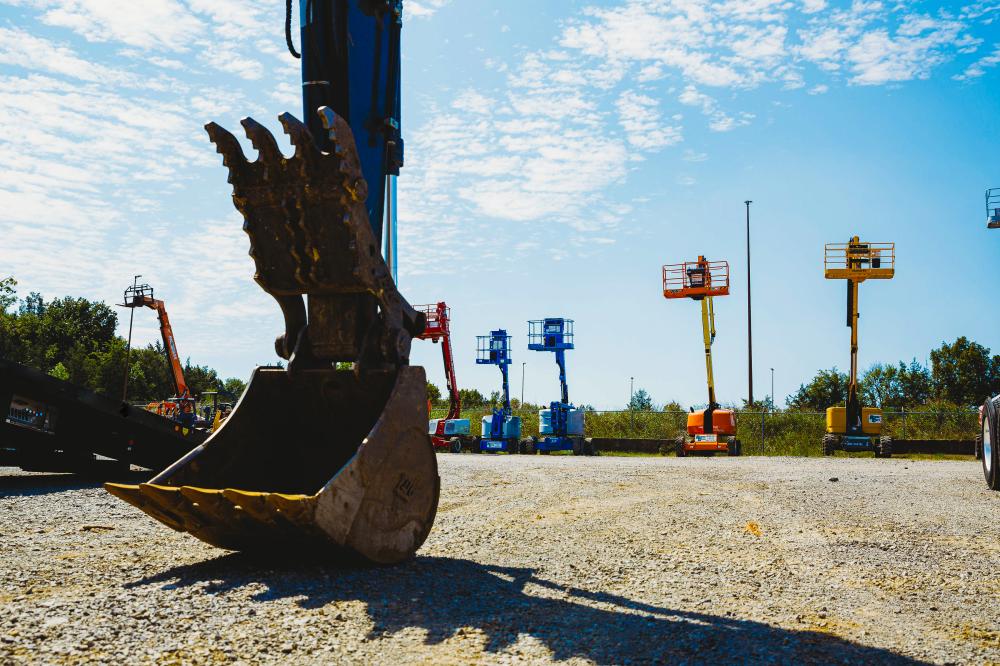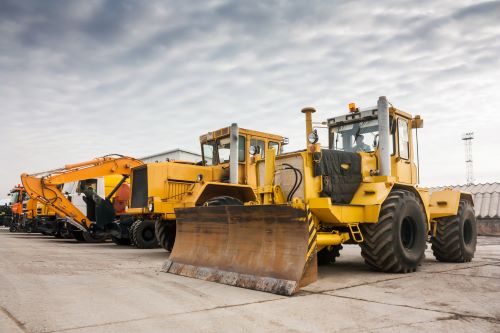Top Equipment Rental Company for Boom Lift Rental and More: Your Go-To for Construction Demands
Top Equipment Rental Company for Boom Lift Rental and More: Your Go-To for Construction Demands
Blog Article
Important Tips for Managing Heavy Tools Rental Contracts and Logistics Successfully
Efficiently managing hefty tools rental contracts and logistics is vital for the success of any type of project that relies on these resources. A thorough understanding of rental terms, paired with exact evaluation of tools demands, lays the structure for positive settlements.
Understand Rental Terms
Recognizing rental terms is necessary for effective hefty devices management. Knowledge with the specific terms of a rental arrangement can substantially impact functional performance and cost-effectiveness. Secret components commonly include rental period, repayment framework, and maintenance obligations. The rental period defines the timeframe for which the tools is leased, affecting budgeting and task timelines. Repayment structures usually vary, including daily, weekly, or monthly prices, which require exact calculations to stay clear of unexpected expenditures.
Moreover, it is important to understand the upkeep commitments described in the contract. Commonly, rental firms preserve the devices, however recognizing who is accountable for regular checks and repairs is important to stop functional disruptions. Additionally, terms may consist of clauses concerning liability for problems or theft, which can have severe economic effects otherwise effectively understood.
Assess Equipment Demands
Assessing equipment demands is an essential step for any type of task supervisor aiming to maximize resource appropriation and improve operational effectiveness. This procedure involves a comprehensive analysis of the job needs, including details tasks, timelines, and the kind of tools required to accomplish desired end results.
Begin by identifying the range of the task and the tasks that will certainly be executed. Consider elements such as the terrain, the scale of procedures, and any prospective difficulties that can influence equipment selection. Involving with team members who will operate the machinery can supply beneficial understandings into functional requirements and preferences.

Next, evaluate the capacity and abilities of available devices options. It is necessary to match the appropriate devices to the tasks at hand, making sure that it can manage the anticipated workload without jeopardizing safety and security or performance.
Furthermore, factor in the rental duration and regularity of use. Recognizing these components can aid figure out whether leasing or buying is one of the most cost-efficient solution. By conducting a comprehensive analysis of devices requirements, job managers can make enlightened decisions that lead to improved productivity and lowered operational expenses.
Negotiate Successfully
Once the devices requirements are plainly identified, the following step entails efficient settlement with rental companies to safeguard beneficial terms. A well-prepared negotiation approach is crucial for accomplishing the very best possible bargain. Begin by researching various rental firms to understand their pricing frameworks, inventory schedule, and track record. This understanding will empower you during arrangements and assist you establish sensible assumptions.
When coming close to the negotiation table, be clear regarding your needs, consisting of the sort of equipment, rental duration, and any type of extra services you may need. This openness allows rental business to provide tailored options that can fulfill your particular demands (heavy equipment rental). Don't be reluctant to request for discounts, especially for long-lasting services or bulk orders, as many business agree to use giving ins to protect larger contracts
Additionally, take into consideration negotiating terms connected to insurance policy, upkeep, and distribution costs. These factors can substantially impact the total price and needs to be clearly described in the rental agreement. Ultimately, ensure that all agreed-upon terms are recorded in contacting prevent misconceptions and secure your rate of interests throughout the rental period. Effective arrangement not only causes cost financial savings however also develops a positive connection with the rental company.
Coordinate Transportation Logistics
Coordinating transport logistics is an important aspect of handling heavy devices rental arrangements. Efficient transport ensures that tools is delivered promptly and in optimal problem, excavation equipment in construction therefore reducing downtime and boosting task efficiency. To accomplish this, it is important to create a comprehensive logistics prepare that describes the whole transport procedure from pickup to distribution.
Begin by analyzing the specific transportation demands based on the kind and dimension of the equipment involved - construction equipment rentals. Involve with dependable transport providers who specialize in hefty equipment to ensure they have the necessary experience and this page equipment, such as flatbed trucks or specialized trailers. Talk about variables such as weight limits, route restrictions, and required authorizations to avoid unforeseen delays
Moreover, keep open interaction with both the rental firm and the transport carrier to work with schedules efficiently. Confirm all information, consisting of pick-up and drop-off times, to make certain every person is straightened and prepared. Finally, establish contingency plans to address any possible disruptions, such as damaging climate or website traffic conditions, which may affect the transport timeline. By thoroughly collaborating transportation logistics, you can support the stability of your rental arrangement and assist in smooth task implementation.
Prepare For Upkeep and Support

Moreover, it is vital to connect straight with the rental carrier concerning maintenance responsibilities. Some agreements might consist of maintenance as part of the rental service, while in various other situations, the onus may fall on the renter. Comprehending these terms will certainly assist avoid unexpected costs and liabilities.
On top of that, having access to technological support can be very useful. Ensure that the rental firm provides 24/7 support or an emergency situation call, permitting speedy resolution of any kind of tools concerns. Educating your team on correct tools usage and regular checks can additionally dramatically improve operational efficiency.
Conclusion
In final thought, effective monitoring of heavy devices rental arrangements and logistics hinges on a thorough understanding of rental terms, specific assessment of devices demands, and adept settlement skills. Emphasizing clear interaction with all stakeholders continues to be essential in browsing the intricacies of equipment service and logistics management.
Properly managing heavy equipment rental contracts and logistics is important for the success of any type of job that relies on these resources. By thoroughly reviewing and recognizing these rental terms, services can make enlightened choices, reduce dangers, and make sure that their hefty tools monitoring aligns with job goals and monetary restrictions.Working with transportation logistics is an important facet of taking care of hefty tools rental agreements.In conclusion, effective management of heavy devices rental contracts earthwork machinery and logistics joints on an extensive understanding of rental terms, accurate analysis of tools demands, and experienced arrangement abilities. Stressing clear interaction with all stakeholders continues to be vital in browsing the complexities of equipment leasing and logistics management.
Report this page